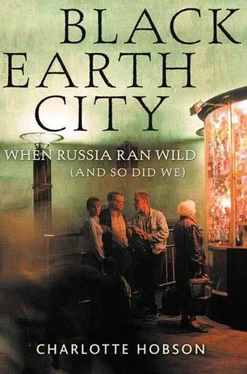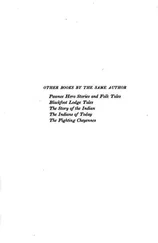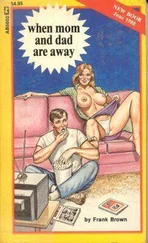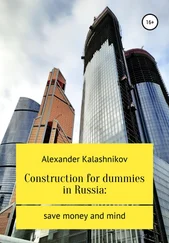“At least that’s over now.” Masha wanted to change the subject: it was the kind of thing she thought vulgar. She didn’t like to associate such squalor with their Leda. But we were interested.
“What did he look like?” asked Valya.
“Like a rock star, dark and skinny—I used to like that look. Not anymore. Now I go for clean-cut men, athletic, you know, straightforward kind of guys.”
“You mean, like Bill?” I said.
Leda laughed. “Bill! He’s athletic, I agree. But I’m not sure he’s so straightforward.”
“Do you know that for sure?”
“No. That’s why I thought it would be interesting to play the truth game.”
“So you and he, are you—”
“No! But he’s keen. And I’m teaching him to waltz. I’ve never danced with a secret agent before. It’s kind of exciting.”
Masha started laughing. “But— bozhe moi , it’s not possible!” “What is it?”
“You said this boy is living with Peanut? Well, people say that Peanut’s family is KGB, rather high-ranking—they have been for several generations.”
“No!”
We pondered this information.
“Who, do you think, spies on whom? They take it in turns, perhaps?”
“Yes, who bugs whom?”
“It’s absurd,” Valya said firmly. “The stupidest nonsense I’ve ever heard. We’re not living in the thirties, to be making such remarks about our friends. Peanut’s family are in the army, just as Bill will be.”
We all agreed with her. It was nonsense.
“I’ll tell you something, though,” said Mitya, after a few moments. “I mean, this is progress, isn’t it? Truly enlightened. Let them bother each other and leave the rest of us in peace.”
Peanut had a tendency to disappear for a few days at a time. It was one of the things that made him mutny , cloudy, opaque. This cloudiness is a common phenomenon. The efforts required to achieve anything in Russia are so labyrinthine, the steps necessary to buy things “on the left” or to obtain the right documents, that it becomes hard to live simply. Cloudiness starts to fog your days, your motives. People don’t like to be questioned too closely. You guard your contacts and deflect inquiry. This time, however, the whole town was talking about Peanut’s family.
There’d been a wedding last Saturday, his cousin, or perhaps his second cousin. The bride and groom had returned from the registry office. They’d been welcomed into the house with bread and salt, and the toasts and the feasting had begun. Soon the families had relaxed, no doubt they were leaning back in their chairs, mopping their faces, laughing and groaning as the mother of the bride carried in more meat, smoked fish, pressed everyone to try a little of the potato salad. That’s how it is at Russian weddings, at least simple family occasions like this one. The father of the bride, like fathers of brides the world over, looked relieved, a little emotional, put his arm around his wife, and gave her a squeeze, as if to say, “We didn’t do too badly, did we, after all?”
Sources disagreed over what happened next. Some said that two men forced their way into the room and grabbed the father of the bride. People on the other side of the room didn’t even realize what was going on. The two men clamped a hand over his mouth and dragged him out. In the shocked second before anyone reacted, they had thrown him down the stairwell. Others said that a fight broke out among the guests, and that’s how the father ended up on the concrete three flights below. Whichever: by the end of the wedding, the man was dead.
As time went on and the police showed no sign of finding the killers, people drew conclusions. That was no coincidence, they said. Live by the sword, die by the sword. It was not as if this was an isolated incident. A secret war was being waged in those last few months of the Soviet Union and Peanut’s relation was just one of the casualties.
Something was extinguished with his death. We didn’t miss it right away, yet, as the months of winter wore on, the sensation of loss grew stronger—a tiny thing, just a little flicker of optimism, a timid idealism that had been lit back in the summer when the mood was brave and fiery. It was such a short time ago that people had tasted victory. At the end of August, when the coup had crumbled, furious crowds had surrounded the Central Committee building in Moscow. Dzherzhinsky’s statue had been dragged from its pedestal outside the Lubyanka. “Smash the KGB!” the placards had read. “Send the Party to Chernobyl!”
The moment didn’t last. One of Yeltsin’s first acts on taking power after the coup was to re-employ the majority of the Party functionaries and put the KGB back in business. Those who had not found more lucrative work in the private sector were back at their usual jobs the following Monday.
They had learned their lesson, though. It was no good relying on the state to provide for them. Now the collective nest was no more, they were forced to feather their own. In the next ten years, apparatchiks and secret police officers would gain control of all the major industries in the country. As directors of the new private companies that traded in Russia’s vast resources of oil and gas, of diamonds, gold, wood and steel, they had access to wealth they could only have dreamed of in the old days. Inevitably, there were disagreements and when these needed to be solved, perhaps an audience of wedding guests was welcomed. Pour encourager les autres .
Life in the hostel lurched on, delightful as ever, although for me it had changed in one respect: I agreed with Mitya about the rumors. There were still hints that we were being supervised by some rather tolerant father figure. There were even moments when I felt anxious, as when I lost my wallet in town later in the winter. I was lucky, really—there was no money in it, nothing at all, in fact, except my student identity card and a joint. For some days I felt the breath of the KGB on the back of my neck. But nothing happened. Perhaps my wallet is still sitting in a file. Or perhaps the thief emptied the contents into a trash can, sold the wallet, and the rest is paranoia. I don’t know. The point was that the secret services were too busy to have much time for us that year. No doubt a little routine form-filling was going on; letters were read and people were called in for questioning now and again. Old habits die hard, particularly among bureaucrats. But the Cold War was over. Making money was the first priority now.
Leda realized this as well, it seemed. A month passed before I went around to the Uvarovs again, and when I did, Leda was there with her new boyfriend. Her flirtation with the secret services had come to nothing, although judging by appearances, there was no lack of interest on the part of the CIA. No, Leda was true to her word.
“Meet Sasha,” she drawled. “He’s a volleyball champion.” Sasha smiled sweetly. He was sitting four-square in the corner, hands crossed tidily in his lap, and keeping quiet. He had clear brown eyes and shiny hair and a healthy sportsman’s complexion. He certainly looked straightforward, although who, I thought, smiling back at him, could ever really tell?
8
Dmitri Donskoy and the Borders of Russia
You have your millions. We are numberless, numberless, numberless. Try doing battle with us!
ALEKSANDR BLOK, “THE SCYTHIANS,” 1918
Strange things had been happening on the train to Kiev. In class one day, our teacher Rita Yurievna told us about the trip she had just made to visit her family. She was shocked.
“The police went straight through the carriage demanding money,” she said. “Those Ukrainians! It’s just pure greed, this nonsense about visas.”
Читать дальше












